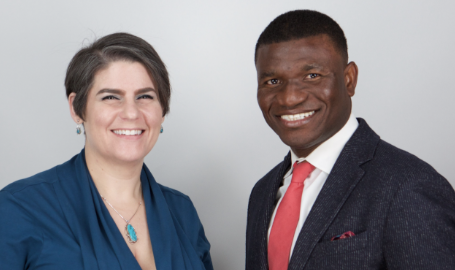
CBT Protocol for Suicide (Self-Study)
Self-Study
There are three sets of psychological processes that make individuals vulnerable to engage in suicidal behavior. These three sets of psychological processes are:
- Dispositional Vulnerability Factors
- Psychological Variables Associated with Psychiatric Disturbance; and
- Salient Suicide-Relevant Cognitive Processes Activated by a Suicide-Relevant Schema.
None of our current interventions fully address all three sets of psychological processes. This also explains why CBT Protocol for Suicide might be one of the most significant tools any clinician might want to possess.
Whether you practice CBT or not. Whether you are unfamiliar with CBT or are an expert CBT Practitioner, this CBT conference on CBT Protocol for Suicide is for you.
This course is eligible for 4 CEUs for social workers through the NASW National CE Approval Program in 46 states
This course is eligible for 4 CEUs for Licensed Social Workers, Licensed Mental Health Counselors, and Psychologists in New York State
What will you learn from this seminar on CBT Protocol for Suicide?
- The three long-standing psychological traits that make anyone vulnerable to suicide and how to intervene
- The salient suicide-relevant cognitive processes, the suicide-relevant schema, and how to restructure them properly and efficiently
- Mastery of the three phases of CBT for Suicide
- How to collaboratively develop a safety plan with all six sections, and how to psychoeducate and engage your patients in making it one of the most powerful tools in the early phase of treatment
- Learn how and when to make the best use of behavioral activation as part of CBT for suicide
- Master the best cognitive restructuring techniques to use in suicidality
- Learn and Master how to help individuals construct and make use of their Hope Kit
- Learn how to help them move on to the Continuation Phase
- Master the Relapse Prevention Protocol in CBT for Suicide
- Master the 20 Golden Questions to Ask in CBT for Suicide
There are three sets of psychological processes that make individuals vulnerable to engage in suicidal behavior. These three sets of psychological processes are:
- Dispositional Vulnerability Factors
- Psychological Variables Associated with Psychiatric Disturbance; and
- Salient Suicide-Relevant Cognitive Processes Activated by a Suicide-Relevant Schema.
None of our current interventions fully address all three sets of psychological processes. This also explains why CBT Protocol for Suicide might be one of the most significant tools any clinician might want to possess.
Whether you practice CBT or not. Whether you are unfamiliar with CBT or are an expert CBT Practitioner, this CBT conference on CBT Protocol for Suicide is for you.
Join Us Now!
Who is this for?
This course is for any clinician invested in learning new or honing existing skills to to support their supervisees to then best support their patients and clients and to end suffering.
KEY INFORMATION:
This course is eligible for 4 CEUs for Licensed Social Workers, Licensed Mental Health Counselors, Licensed Marriage and Family Therapists, and Psychologists in New York State
For more information about CEU approval, please click here.
Format: Self-Study Online Seminar
Join Us Now!

"I would recommend this seminar because I think every therapists should know how to work with trauma and that we can use CBT with trauma depending upon the client and what kind of trauma."
- Phyllis, LMSW

"I love how organized and patient Dr. Sidor was in explaining the reasons why CBT works in depressed clients."
- Marsha, LMSW

"Excellent Facilitator. Karen Dubin implements the CBT Method to excellent clinical examples throughout the seminar while engaging the participants to actively participate."
-Cheryl, LCSW-R

"I love the active engagement between Lecturer and attendees which promotes interest, attention, and active learning that promotes learning, understanding, and retention."
-Jeffrey, MD

"I would recommend it because it is an excellent and important topic that was very well covered."
- Meghan, LMHC
Join Us Now!
Your Facilitator and Co-Facilitator

Mardoche Sidor, MD, is a Harvard-trained Quadruple Board Certified Psychiatrist, Assistant Professor of Psychiatry at Columbia University, School of Physicians and Surgeons, trained in and taught all major psychotherapeutic modalities, including and not limited to CBT, DBT, Family Systems, and Psychodynamic Psychotherapy. He is also the author of 11 books including Journey to Empowerment, Discovering Your Worth, The Power of Faith. and, The Art of Living. Dr. Sidor has worked both as a primary care physician and Medical Director in three different settings, including a Chief Medical Officer of the Center for Alternative Sentencing and Employment Services (CASES). He is a main facilitator for the SWEET Institute. His 11th book, entitled, NLP for Clinicians is now available to the public.
Karen Dubin, PhD, LCSW, is a Columbia-trained Social Worker with wide clinical, teaching, and supervision experience. She also has a background in management, mentorship, and leadership that spans more than 20 years. Her added passion is in advocacy and coaching. She has previously held Executive level positions, and two other directorships in different organizations. She is currently Adjunct Faculty at Columbia University School of Social Work and Adelphi University School of Social Work. She also maintains a private practice, provides supervision, and clinical and management training. She is also a personal and executive-level coach. She is a main facilitator for the SWEET Institute.
SWEET Curriculum

